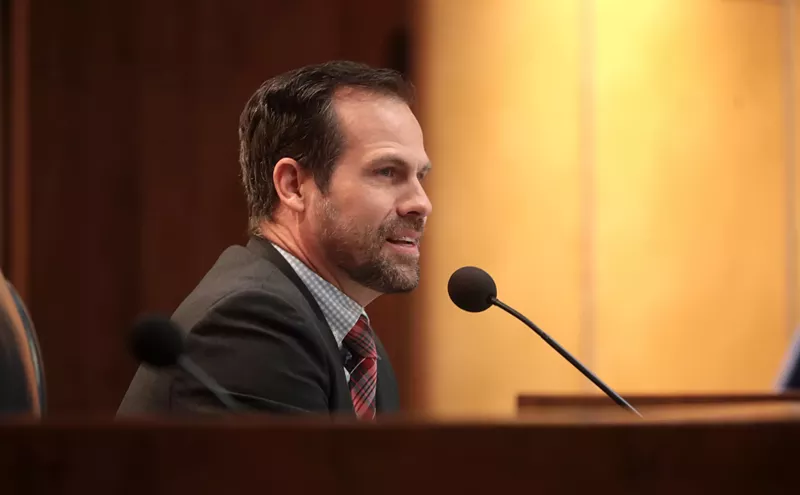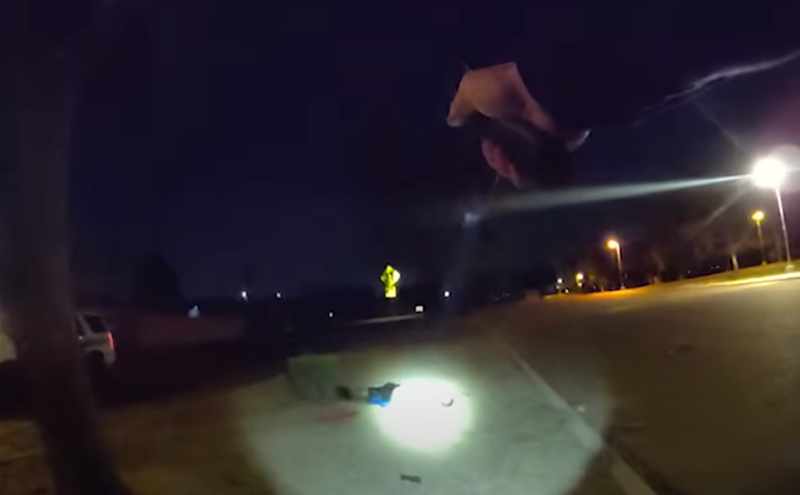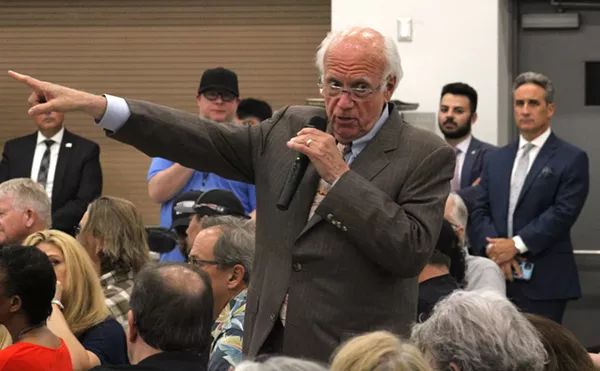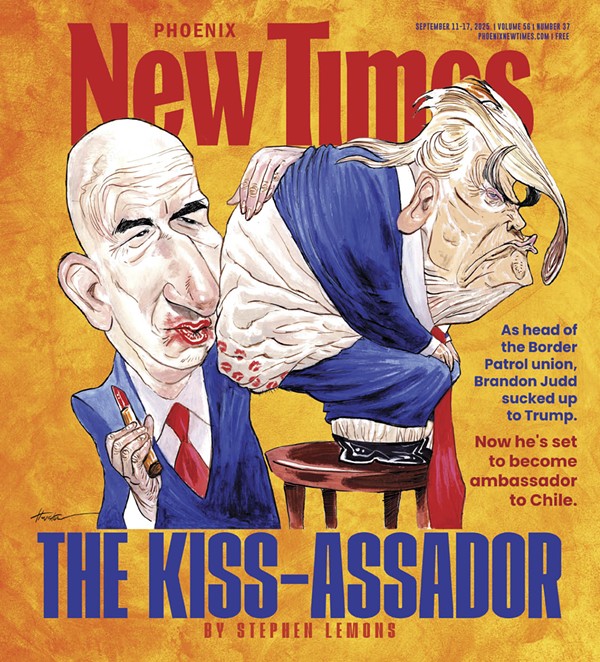The bummers just keep on comin'.
Arizona lawmakers and judges are taking aim at a 14-year-old law that marijuana activists claim legitimizes pot use.
At the urging of frustrated police and prosecutors, legislators are poised to snuff out the 1983 law requiring marijuana dealers to purchase tax stamps and licenses before peddling pot in Arizona.
The measure was originally intended to hurt pot dealers--it had been passed by conservative lawmakers who wanted to heap extra punishment on pot peddlers already facing prosecution under existing laws. But the law had unintended consequences--marijuana activists claimed it actually justified marijuana merchandising.
"It sent a mixed message, and it kind of backfired," says Mesa Republican Mark Anderson, the chief sponsor of the so-called Omnibus Drug Bill, which would repeal the tax-stamp and licensing provisions in the 1983 law, among other things.
To the horror of pot dealers, three weeks ago the House passed Anderson's Omnibus Drug Bill.
The new drug bill is now awaiting a committee hearing next week in the Senate.
Marijuana activists at the Arizona chapter of the National Organization to Reform Marijuana Legislation, or AZ4NORML, a group of often quixotic pot advocates who have tried for years to decriminalize the weed, say they figure the Omnibus Drug Bill is certain to pass, thus squelching the 1983 law.
For years, marijuana peddlers took advantage of the 1983 law and purchased stamps and licenses for pot peddling in relative obscurity. The state Department of Revenue, which sold the stamps, was specifically prohibited from giving the list of buyers to lawmen.
Then, in August 1995, Phoenix police found a bag of pot in the Phoenix home of Pete Wilson, a marijuana activist.
The police discovered that Wilson had affixed an Arizona Department of Revenue-issued tax stamp to his bag of pot. After Wilson presented his license to police, they left the house, only to return to arrest him for possession.
Three months later, northwest Phoenix Justice of the Peace John Barclay dismissed charges against Wilson. In his ruling, Barclay wrote that by licensing and taxing marijuana sales, the state had created a "confusing paradox," which essentially gave official sanction to an illegal activity. The justice of the peace concluded that further prosecution of Wilson, who had already been penalized for marijuana usage by paying the tax, constituted double jeopardy.
Pot enthusiasts were overjoyed. "It is now legal to possess cannabis in Arizona--as long as you pay the tax," gushed a flier distributed by marijuana activists at the time.
In the months since the Barclay decision, the state Department of Revenue has sold at least 70 licenses.
But the victory claimed by marijuana activists was short-lived.
State prosecutors appealed Barclay's ruling in Maricopa County Superior Court, where Judge Susan Bolton ruled that Barclay did not have the authority to dismiss the case on double-jeopardy grounds. Bolton sent the case back to Barclay, who then ruled that police lacked probable cause to arrest Wilson.
Prosecutors don't seem to be putting much weight on Barclay's most recent decision.
"The only thing that I can say is that it is still under review," says Bill FitzGerald, spokesman for the Maricopa County Attorney's Office.
Nevertheless, pot activists still cling to the 1983 law as a way to stay out of prison.
For instance, Richard Marvin Davis, a 55-year-old California marijuana activist, was arrested while selling stamped bags of pot outside the NFL Experience during the 1996 Super Bowl in Tempe.
Davis, who has yet to go to trial, pleaded not guilty to three counts of selling marijuana and one count of marijuana possession. He cited the tax-stamp law as one reason he should not be prosecuted.
Superior Court Judge Brian Ishikawa did not agree. In February, during preliminary legal proceedings, Ishikawa refused to allow Davis to use the 1983 law as part of his defense.
Ishikawa said, ". . . the fact that the defendant obtained a 'license' from the Department of Revenue . . . cannot be invoked by the defendant as a shield from prosecution. . . ."
The judge also wrote that the 1983 law ". . . does not exempt a person from criminal liability.












